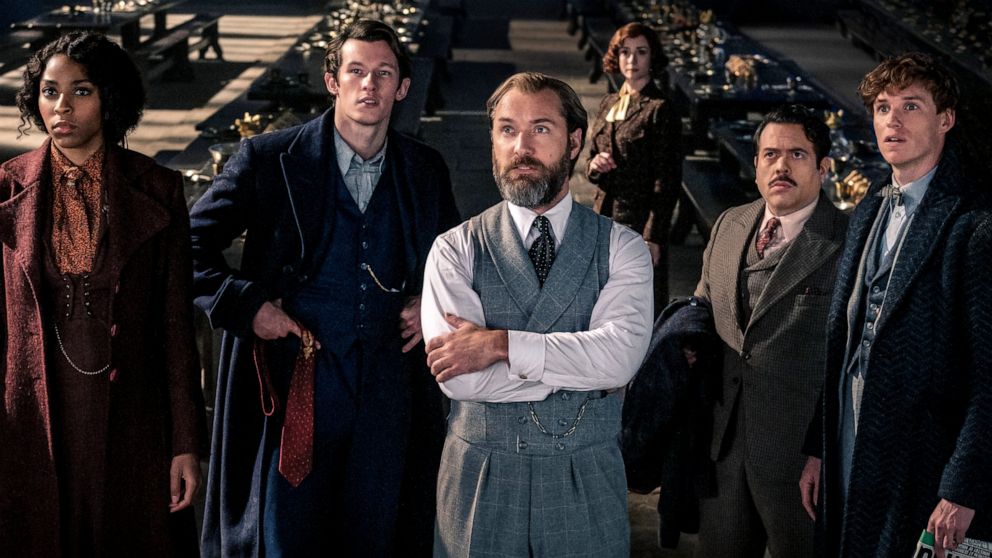
Review: Potter prequels peter out in 'Dumbledore'
ABC News
Time always flew in J
Time always flew in J.K. Rowling's Wizarding World but it has lately seemed to catch up to the Potter pop cultural sensation. Those long lines outside bookstores are a long time ago now. The books stopped but the movies never did. The “Fantastic Beasts” prequels, now up to three with “The Secrets of Dumbledore,” have soldiered on, even if the fever surrounding Pottermania — at least among less diehard Muggles — has dissipated.
There's always been a sense of dislocation about the “Fantastic Beasts” movies. The Potter films — boarding school movies with magic thrown in — swirled around life at Hogwarts. But where is the heart of “Fantastic Beasts"? The prequels have a foot in 1920s and '30s New York, with world war storm clouds all around, but they flitter anxiously between fantasy realms far and wide.
Who even are our most central characters? “The Secrets of Dumbledore,” perhaps seeking its own clarity on the issue, pushes Jude Law's wise wizard to the fore. We began these movies with Eddie Redmayne's magizoologist Newt Scamander. Perhaps he was always meant to slide to the side, but, either way, I think Redmayne's meek and mannered performance has made Newt less of a protagonist to hang a story on and more of a sentimental mascot alongside a troupe of characters — including the baker Jacob Kowalski (Dan Fogler, increasingly central) and the law-enforcing wizard Tina Goldstein (Katherine Waterston, more on the outs).
The villain, at least, has been steadfast — the character, anyway, if not the actor playing him. After two films with Johnny Depp in the role, Mads Mikkelsen takes over as the dark wizard Gellert Grindelwald, a onetime friend and love interest of Dumbledore's. Grindelwald's rise has been the overarching drama to the “Fantastic Beasts,” an ominous series framed around the menacing power grab of a tyrant who, with echoes of fascism then and now, wants the magical world to rule over Muggles.
